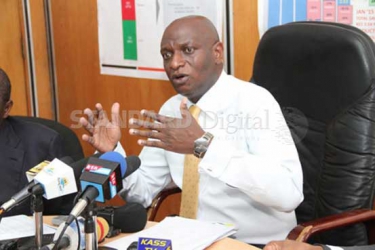×
The Standard e-Paper
Join Thousands Daily

NAIROBI, KENYA: The Government is considering splitting the Energy Ministry to create a new docket focusing primarily on commercialising Kenya’s oil.
A highly placed source said yesterday that if actualised, the move would see one Cabinet secretary exclusively take charge of the petroleum docket, with the other taking care of the rest of the energy sector.